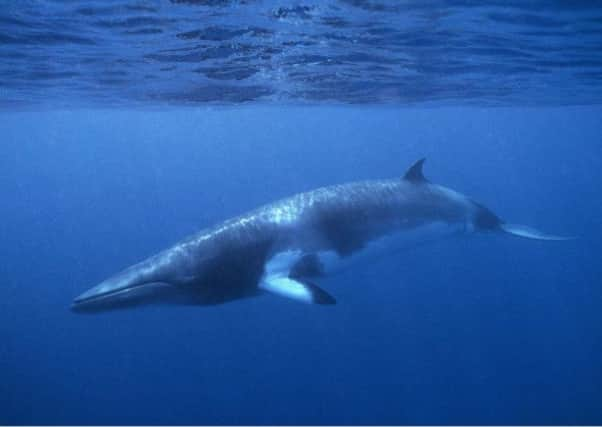Marine life to benefit from 30 protected areas


Other creatures to benefit include a rare giant clam with a 500-year lifespan, coldwater coral reefs and the distinctive black guillemot.
The Scottish Government has designated 30 new marine protected areas (MPAs) in an attempt to conserve rare and iconic sea life.
Advertisement
Hide AdAdvertisement
Hide AdMinisters also announced they will put forward an additional four areas to protect basking shark, which are classified as vulnerable, whales and dolphins and 14 for internationally important seabirds.
One of the proposed new areas covers seas between Skye and Mull, which have been identified as a vital pick-up point for basking sharks seeking a mate.
The new MPAs have doubled the amount of Scotland’s seas that are off-limits to harmful activities such as trawling and bottom-dredging and mean around one fifth of the country’s waters are now protected areas.
Scotland’s seas cover an area six times its land mass and are the fourth-largest in the European Union, with around 6,500 species of plants and animals – including 22 types of whale and dolphin and almost half of the EU’s breeding seabirds.
The conservation sites, which are required under European and national laws, will provide a haven for creatures including flameshells, feather stars, the common skate and the ocean quahog – a large mollusc that can live longer than any other animal on the planet.
They will also protect sandeels, which many seabirds and marine mammals depend on for food. The newly designated North East Faroe Shetland Channel is estimated to be the EU’s largest MPA.
Environment secretary Richard Lochhead said: “These MPAs will help protect and enhance our marine environment so that it remains a prized asset for future generations.”
The designation, which comes after a large-scale public consultation, has been widely welcomed by conservationists and environmental groups.
Advertisement
Hide AdAdvertisement
Hide AdCalum Duncan, a manager with the Marine Conservation Society, described it as “a landmark decision” for Scotland, adding: “After many years of unchecked decline, we have now started to recognise that our nationally important sea life and neglected marine habitats need better protection.”